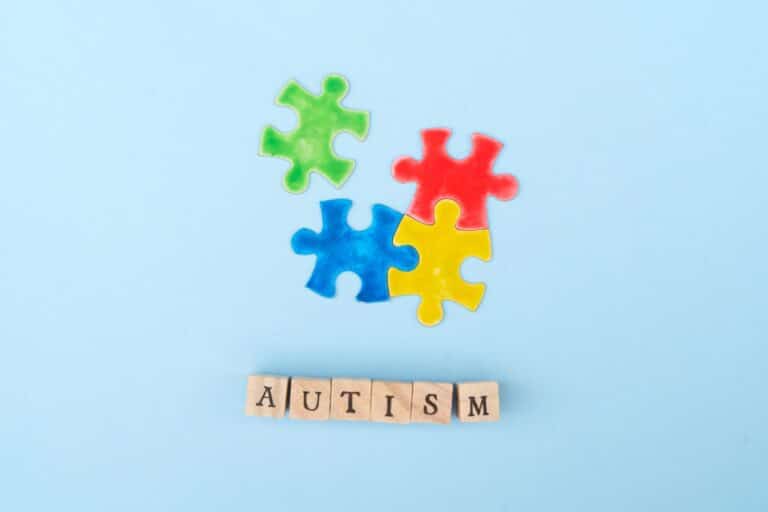Many people who spend a lot of time alone are referred to as homebodies or introverts. Although this can be normal behavior, it is important to know the difference between this and behavior that can be more problematic. This can be a difficult thing to differentiate, especially when it comes to self-evaluation.
To do so requires one to be honest with themself about their actions and the reasons behind them. A helpful first step is understanding what it means to be isolated versus introverted. Only then can one try to determine which category they fall into and whether or not they should seek help.
Isolating vs. Introverted
Self-isolation can be both a symptom and a cause of mental health disorders. Isolation’s cyclical and compounding nature can be a self-perpetuating problem that worsens an individual’s mental health. Someone may not even be aware that they are isolating themselves unless a friend or loved one mentions it to them. Even then, they might lack the insight to consider the possibility. They might even experience some denial and rationalize their isolating behaviors as being an introverted person.
Being an introverted person is typically a benign personality variant. This means that it doesn’t usually have harmful or distressing effects on one’s life like isolation can. Instead, for introverted people, excessive social exposure could be detrimental to their mental health. Introverts thrive on spending time alone with themselves and their thoughts.
While their definitions seem straightforward, it is not always easy to differentiate the two on a surface level. However, there are a few key differences that can help to distinguish between the two.
Recharged or Tired
One significant difference between self-isolating and being introverted is how time alone affects a person’s energy levels. Does time alone leave them feeling recharged, or does it cause fatigue? Introverts tend to expend all their social currency during their daily interactions. Being alone is their opportunity to recharge and destress. After some time alone, an introvert will be more energized and rested.
Those who isolate themselves may already struggle with fatigue from a condition that causes them to isolate, such as depression. Yet, the very act of isolating can exacerbate this fatigue. Being well-rested is about more than sleep, it’s about feeling fulfilled inside. Those who self-isolate often desire to be social with others and active in the world. The feeling of missing out on these experiences can cause physical, mental, and emotional exhaustion.
Happy or Depressed
Another notable difference between self-isolating and being introverted is how time alone affects one’s emotions. On the surface, the two behaviors can appear similar, but the emotional experience is vastly different. Introverts like being alone, but it doesn’t mean they always prefer it that way. While they still care about their social circles, they tend not to base their internal worth and happiness on these. Being alone and happy is a sign of mental wellness.
Those who self-isolate may become depressed because of the isolation, or they may isolate themselves because they are depressed. They generally want to be social with others but feel incapable of doing so. Meanwhile, the feeling of missing out on life can cause or worsen their depression. This depression can reduce energy and interest in doing things that they would typically find fun or enjoyable. As a result, they stay home and away from others, worsening their isolation.
Identify the Underlying Reason
A fundamental difference between those who self-isolate and introverts is the reason why they spend time alone. Introverts typically have a good relationship with themselves. They may spend time alone to recharge, focus on self-discovery, or further their identity development. This is a constructive journey of self-improvement and self-love and is considered beneficial for their mental health.
Conversely, those who isolate themselves might not have the best relationship with themselves or others. Being alone can be a way to escape or avoid parts of life that are difficult or uncomfortable. This separation from others doesn’t lead to healthy behavior like the self-discovery seen in introverts. Instead, it harms their sense of self-worth and exacerbates the feeling of needing to isolate. Isolation is complex and may stem from various underlying mental health conditions.
Knowing the Difference
When someone findings themself spending a lot of time alone, it can raise questions about whether they are self-isolating or simply an introvert. While these can appear similar in their external behaviors, they are markedly different in critical ways. Spending time alone as someone with an introverted personality can benefit their mental health. Conversely, self-isolating can be an unhealthy and cyclical habit. It’s essential for people to be aware of the differences and be honest about why they spend time alone. Only then can they take the necessary steps to seek help if needed.
Spending excessive time alone can be normal or problematic, depending on the circumstance. For someone with an introverted personality, this behavior can benefit their mental health. Conversely, isolating can be detrimental and cyclical in nature. Differentiating the two can be difficult, but knowing several key differences can help. At Southern California Sunrise Recovery Center, we understand the detriment that isolation can have for our clients and their loved ones. We aim to help you better understand yourself and how to discover and address the underlying causes of your isolation. If you spend excessive time alone and fear you might be isolating yourself, call us at (949) 284-7325 to talk to a staff member today.






